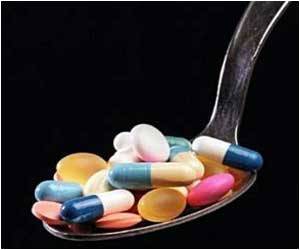On use of antiplatelet drugs during heart surgery, the Society of Thoracic Surgeons has updated its clinical practice guideline.

Key Points
- STS antiplatelet guideline revised to reflect new medications, bedside tests, and scientific evidence.
- Guideline represents effort of the heart team.
- Patients are encouraged to ask questions about antiplatelet therapies.
Antiplatelet drugs inhibit platelet corpuscles that enhance blood clotting. They include aspirin and other nonsteroidal anti-inflammatory agents that prevent blood cells from clotting. Antiplatelet therapies are prescribed to patients undergoing angioplasty or with uncontrollable angina, and may be prescribed to reduce the risk of heart attack and stroke.
"We decided to update the STS antiplatelet clinical practice guideline because we found numerous new relevant studies and new bedside tests," explained Victor A. Ferraris, MD, PhD, from the University of Kentucky, Lexington, and Chair of the STS Task Force that wrote the "2012 Update to The Society of Thoracic Surgeons Guideline on Use of Antiplatelet Drugs in Patients Having Cardiac and Noncardiac Operations."
The guideline writing group included a multidisciplinary team comprising cardiac surgeons, cardiologists, anesthesiologists, pharmacists, and nurses from across the United States.
"The heart team will now be able to provide better evidence-based care to patients with limited practice variations," said Dr. Ferraris.
The new 2012 antiplatelet therapy recommendations address:
- New tests used to evaluate the effects of antiplatelet drugs at the bedside. These point-of-care tests allow better decision making for patients who require urgent operations and who have taken preoperative antiplatelet drugs. These tests are also used in the perioperative period to monitor the need for platelet transfusions;
- Managing patients taking antiplatelet drugs before non-cardiac operations, including lung and vascular procedures;
- Management of newer antiplatelet drugs, such as ticagralor and prasugrel, around the time of cardiac operations;
- Treatment options in patients who require urgent operations and are on antiplatelet drugs;
- Timing of operations for patients taking antiplatelet drugs; and
- Additions to the multidisciplinary management of patients on antiplatelet drugs undergoing cardiac surgery.
Guideline Development Process
"The STS Workforce on Evidence Based Surgery completes a thorough and exhaustive review of clinical information pertaining to STS guidelines every five years, or sooner if new evidence becomes available," said John D. Mitchell, MD, from the University of Colorado, Denver, and Chair of the STS Workforce on Evidence Based Surgery. Prior to publication, each guideline also undergoes an intense peer-review process, which provides critical, unbiased scientific assessment of the document and helps to identify future areas of investigation.
Source-Newswise
 MEDINDIA
MEDINDIA




 Email
Email





